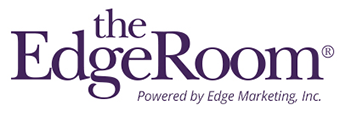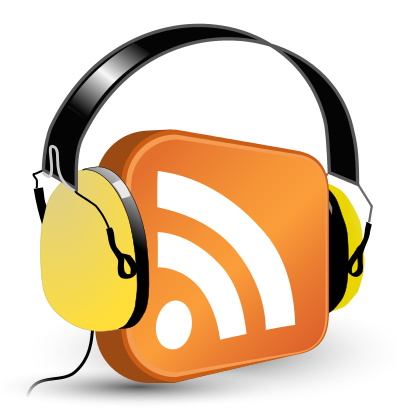I have a confession to make. I’m a podcast junkie. And I’m not alone.
Podcasts represent the perfect virtual fireside chat, offering beautiful ecosystems of shared interests in a portable format. They also encourage engaged audiences – invested listeners who grow communities through online forums and in-person meetings. In fact, more than 120 million people – about one-third of the U.S. population – have heard a podcast. Sixty-seven million have listened to one in the past month. Companies are tapping into this bonanza, with podcast advertising expected to crest $256 million in 2018 (up from $167M in 2016).
Care to tap into that magic yourself? What if your company’s expert guested on a podcast? Your business could well benefit from that.
Find a target.
But wait (I can hear you say), I’m not a true crime expert or a politico. There isn’t a podcast out there that’s a good fit for my company or me.
Check again. Search podcasts on iTunes or Google by keywords. Check industry publications, many of which are supplementing coverage with podcasts. See if conferences in your field offer companion podcasts or feature podcasters as speakers. Ask colleagues what podcasts they prefer.
The number of relevant opportunities will surprise you.
Research the podcast and its hosts.
Cover all bases by putting in a little podcast research. Break out the earbuds. You’ll need to listen to more than one or two podcasts to get a true feel for them.
When you’re listening, pay attention to:
- What is the format/flow of the podcast? How long is it? What’s the tone? Are there ads? If so, from whom?
- Does the production sound professional? Specifically, is there background noise? Are there solid introductions of the podcast, the host and its guests?
- Who are the hosts? Do they sound knowledgeable? What types of questions do they ask? What makes them excited?
- What guests have appeared on this podcast? What have been past topics? Are the conversations interesting?
- Is the content appropriate?
Supplement this research by digging more into the podcasts’ hosts and reading their bios. Have they written blogs or books? Do they have engaged followers on social media? Do they often present at conferences?
Don’t forget to read reviews of the podcasts. You can find them on iTunes, Google Play, Stitcher, and more.
Work with experts to pitch yourself as a speaker.
Bring in the PR experts to position yourself as a speaker. A reputable PR/marketing agency will already have contacts and know how to effectively lobby on your behalf. They’ll also coach you to successful results.
Find fresh topics.
Brainstorm topics that will appeal to the podcast hosts and its audience. Mine current events to see if there’s a tie-in you can launch from. Explore challenges that podcast audiences may face every day. As an expert, you see solutions where others may not. That’s a strength.
Remember, you don’t always have to recreate the wheel. Consider current marketing or PR work to see if it yields complementary concepts that can cross into the podcast world. For example, your recent article on professional services and technology may open doors for new conversations.
Now that you’ve landed the gig . . . prep, prep, prep.
Ask for questions/ideas ahead of time.
Prior to the interview, inquire if the podcast hosts have specific questions they’d like to ask or if they would welcome suggested questions from you. It’s helpful to have a structure to the conversation, plus you can ensure you’re prepared with thoughtful responses that add value to the listening experience.
Map out the points you want to make.
You may have questions as a starting point. If not, muse over what you’d like the listeners to take away from the interview. Outline potential conversation points, including research, best practices and anecdotes that support them. Think of potential questions you might be asked and take notes on your responses. The purpose of this is not to make a script. Instead, you’ll create a valuable reference document for your interview.
Rehearse and record yourself.
OK, this might make some people cringe. Haven’t we all heard ourselves, screwed up our faces and thought, “Do I really sound like that?” But it’s a valuable exercise.
First, it’ll point out the basics. Are you talking too quickly? Perhaps your voice gets too low? Are you relying too much on “uh” and “er”? Do you mumble? You might not notice these things without hearing it yourself.
Second, it’ll show if you’re answering the questions. You get excited. You’re sharing thoughts about something. Then you finish talking but you haven’t really answered the question. This happens more than you expect.
Third, it’ll encourage sound bites. Any voice-driven medium benefits from concise and interesting comparisons, explanations or personal experiences. These are the quotes that really garner attention, because they add a human angle or boil complex concepts down into everyday situations.
Fourth, it’ll remind you not to shut out your personality. Do you want to be professional? Yes. Do you want to be a bore? No. It’s OK to laugh or show excitement.
Finally, it’ll prevent you from freezing up. I’ve had clients convinced they can ace a recorded interview without rehearsing. Sure enough, the light goes on and the mouths slam shut. Going through the motions a few times ahead of the interview will prevent this.
Remember – rehearse but don’t over-rehearse. You’ll take the joy out of the interview. No matter what the business purpose of your interview is, at the end of the day a podcast is really about people connecting and exploring ideas that really energize them.




